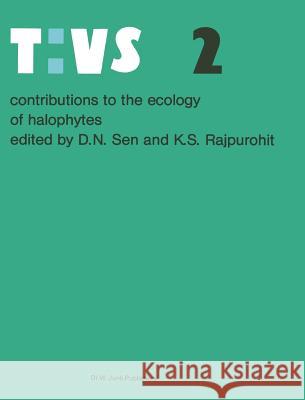Contributions to the Ecology of Halophytes » książka
Contributions to the Ecology of Halophytes
ISBN-13: 9789061939429 / Angielski / Twarda / 1982 / 272 str.
The ecology of halophytes has a wide scope of interest, appealing to people of many disciplines. It covers widely different fields such as climatology, soil science, phytogeography, adaptive biology and agriculture. Ecologists study these specialized plants in relation to estuarine ecosystems, biology of dominant genera, germination ecology, water relations, salt secretion, and senescence. The present volume is divided into three parts and attempts to elucidate new aspects of the problems faced by this special group of plants. It tries to give the reader an overall view of saline environments and the ecology of plants found therein. In the first chapter of part one Zahran presents the halophytic vegetation of Egypt, which includes the inland and the littoral (Red Sea and Mediterranean Sea) salt marshes. The plants he describes have been classified as succulents, excretives and cumulatives, according to their adaptability to saline soils and according to their different life-forms. The second chapter throws light on the estuarine ecosystem ofIndia. The estuaries are described by Joshi, and Bhosale as being rich in diversity of mangrove species. Making varied use of estuarine ecosystems is not only possible, but also essential because they are the meeting point between terrestrial and marine life.











